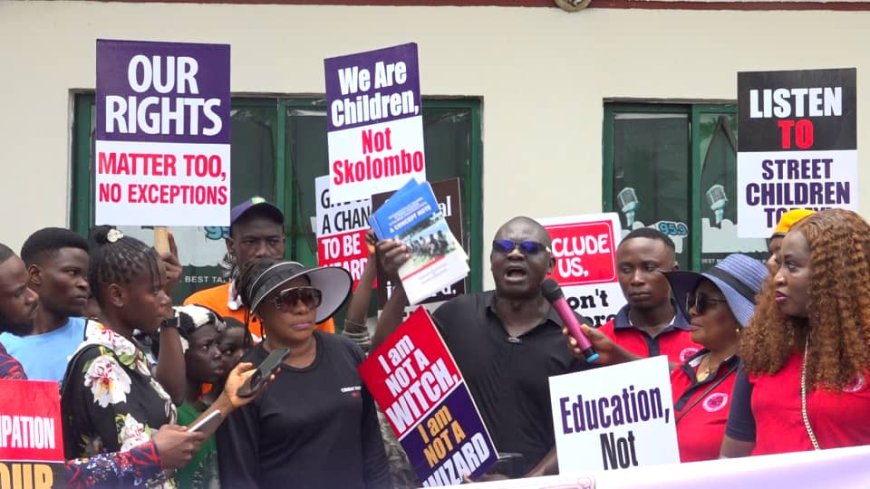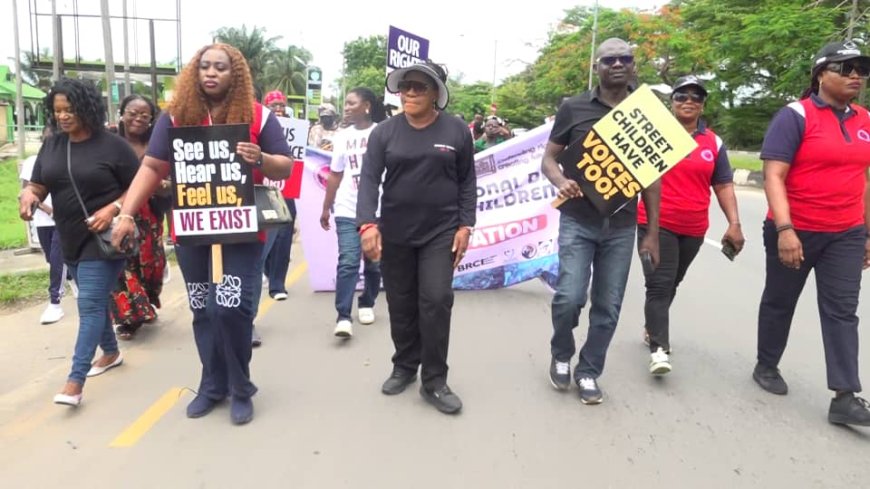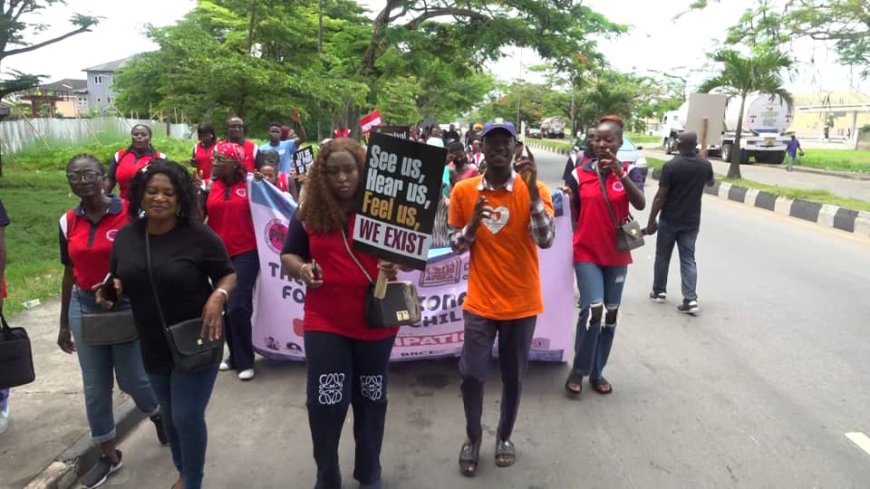“They Aren’t Witches”: C’River Leaders, Activists Demand Action on Street Children Crisis

By Ebi COLLINS
The 2025 International Day for Street Children has ignited a powerful call to action in Cross River State, as government officials, child rights advocates, and civil society groups decried the alarming neglect of street children and demanded urgent intervention.
With this year’s theme—“Participation”—emphasizing the inclusion of children in decision-making processes that affect their lives, stakeholders warned that the growing population of street children poses a looming social crisis if left unaddressed.
Hon. Edema Irom, Commissioner for Women Affairs in Cross River State, described street children as “innocent victims of circumstance”, not delinquents or societal threats.
Speaking at a commemorative event in Calabar, April 11, she urged coordinated efforts among government, civil society, the media, and families to rescue and rehabilitate vulnerable children.
“This is not just a children’s issue—it’s a societal emergency,” she said. “If we don’t act now, we risk raising not only a generation, but entire lineages of street dwellers—children, parents, and eventually grandparents trapped in poverty and neglect.”

The Commissioner thanked the First Lady of Cross River State, Bishop (Mrs.) Eyoanwan Otu and Governor Bassey Otu—whom she described as “the People First Governor”—for their political will in supporting initiatives that prioritize the welfare of street children. She, however, warned parents and religious leaders against harmful practices like witchcraft branding of children.
“Some pastors are responsible for labeling children as witches and pushing them onto the streets. Parents must stop listening blindly. Raising a child is a divine mandate—not a burden to be cast aside,” she said.
Human rights lawyer and child protection advocate, James Ibor, was more scathing in his critique. The Principal Counsel at the Basic Rights Counsel Initiative (BRCI) blamed the government directly for the proliferation of children living in street situations.
“It is not the children who have failed—it is the government,” Ibor declared. “These children are not witches, not criminals, not nuisances. They are victims of state failure, institutional neglect, and zero social services.”
He called on the government to implement the Child Rights Law of 2023, which, he said, remains dormant despite its passage. “We have documented how these children can be rehabilitated within two years. But the government remains deaf. And until they repent and get serious, this crisis will grow.”
According to Ibor, true participation means not just talking about the children, but involving them directly. “Any initiative for street children that excludes their voices is not for them—it is for optics,” he said.
Also lending his voice was Jonathan Abang Ugbal, South-South Coordinator of the Take It Back Movement, saying “Street children are the weakest link in our society. And a society is only as strong as its weakest link.”

Continuing, the social activist warned: “Neglected today, they may beg for food. Ignored tomorrow, they may take it by force. This is not just their problem—it’s everyone’s problem.”
He condemned a culture of impunity where parents abandon children, brand them as witches, and walk free. “It is a crime to dump your child on the streets. And we will ensure that such parents are held accountable and prosecuted.”
Perhaps most heartbreaking were the testimonies from street children themselves. One teenager admitted resorting to drugs and smoking just to survive. Another young girl spoke of frequent rape incidents, pregnancies, and deaths among girls like her.
“If not for God, I would have been dead by now,” she said tearfully.
The International Day for Street Children in Calabar ended not with a celebration, but with a sober call to action: for the government to implement existing laws, for parents to take responsibility, and for society to see street children not as threats—but as fellow humans in urgent need of help.














































